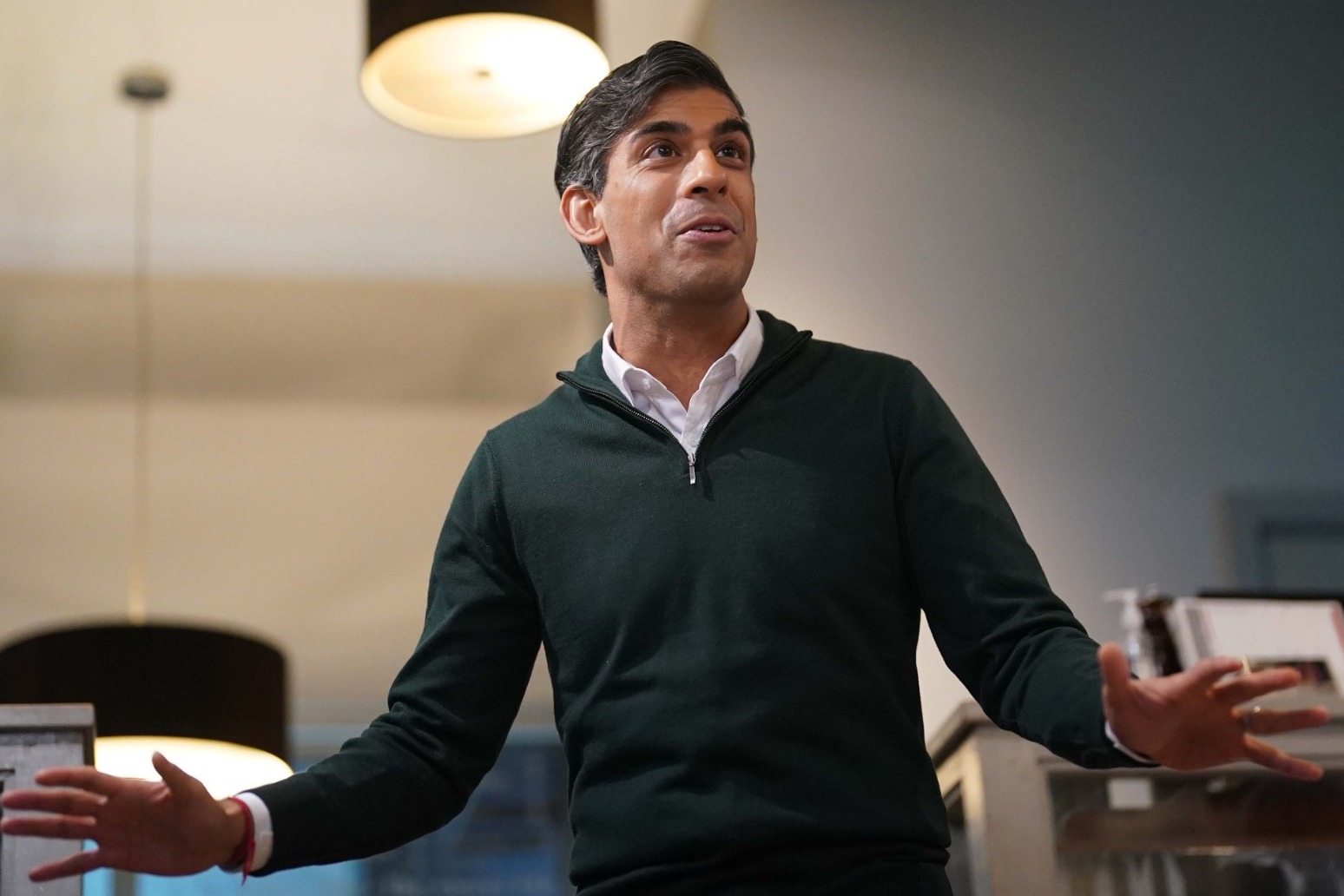
It follows a cut in the main rate of National Insurance yesterday
Rishi Sunak has hinted that pre-election tax cut giveaways will be made on the back of “difficult decisions to control welfare”.
The Prime Minister said it was his “priority” to “keep cutting people’s taxes” after a 2p cut in national insurance was introduced on Saturday, having been announced at the autumn statement.
But he told The Sunday Telegraph: “There is no way we can do that unless we restrain the growth in the public sector and government spending.”
It raises the prospect that the Conservative Party leader could look to find headroom to offer tax cuts ahead of a general election by reducing public spending or reforming how welfare support is funded.
The pledge to offer fresh tax cuts while tightening the reins on public spending appears to be an attempt from Mr Sunak to draw a dividing line with Labour ahead of the country going to the polls to elect the next Westminster government.
Mr Sunak told the newspaper that if Labour gets into power then “taxes are going up”.
That is despite Labour leader Sir Keir Starmer pledging in September that he would not raise taxes if he secures the keys to 10 Downing Street.
Shadow chancellor Rachel Reeves, asked by The Daily Mirror whether national insurance could rise under a future Labour government, said: “You will not see increases in taxes on working people under a Labour government.”
The Prime Minister’s latest comments come after the main rate of national insurance was cut by two percentage points, from 12% to 10%.
Chancellor Jeremy Hunt said the pre-election cut means families with two earners are nearly £1,000 better off a year.
But Labour said it amounted to a “raw deal” as Mr Hunt has kept tax thresholds frozen — a fiscal policy first introduced by Mr Sunak when he was chancellor during the coronavirus pandemic.
The frozen thresholds will provide a de facto tax rise to millions as their wages increase with inflation while tax bands remain static.
Mr Sunak said the autumn statement in November delivered “the biggest set of tax cuts in one event since the 1980s”, with some business relief also made permanent by his Chancellor.
The PM told The Sunday Telegraph: “That tells you that we mean business.
“When I say that I want to keep cutting taxes, that is what we’re going to deliver.
“We’re going to do that responsibly. That requires difficult decisions on public spending. It requires difficult decisions to control welfare.
“Those, I believe, are the right things to do for our country. That is what I want to do.
“I’m very clear: I want to control public spending, I want to control welfare, which we’re doing.
“And because we’re doing that, and because we’re being disciplined with borrowing and our debt, we’re going to be in a position to cut taxes.”
The Prime Minister declined to say what taxation he would like to see reduced or abolished but said he believed that British society should be “one where… hard work is rewarded”.
After the autumn statement in November, the Government faced pressure by Tory MPs to go further and cut income tax or inheritance tax.
Mr Hunt, in an interview with the BBC on Saturday, called inheritance tax “pernicious” but said he could not say “whether it is going to be affordable to reduce taxes” in 2024.
The decision to bring forward the national insurance reduction from April to January was seen by many commentators at the time of the autumn statement to be a signal that Mr Sunak could call a spring election.
An announcement last week that the Budget will be held on March 6 appeared to validate that theory further.
But the Prime Minister told broadcasters on Thursday that his “working assumption” was that he would call an election in the second half of the year, ahead of the January 2025 deadline for the country to have its say.
Published: by Radio NewsHub








